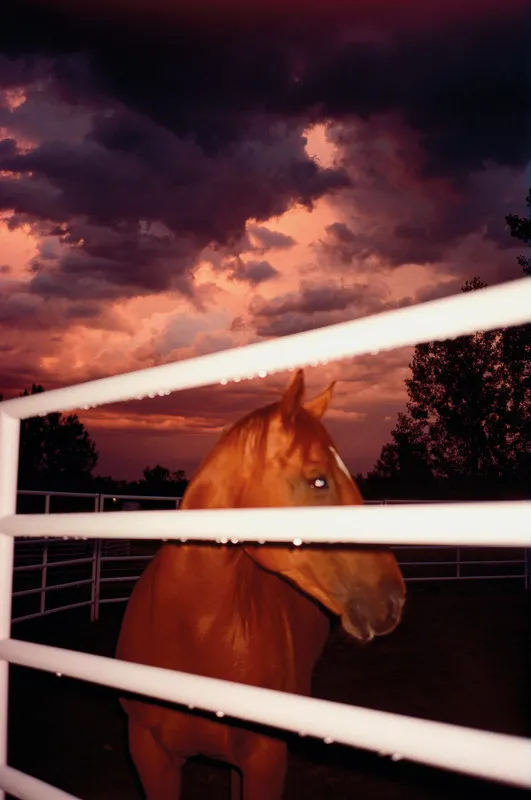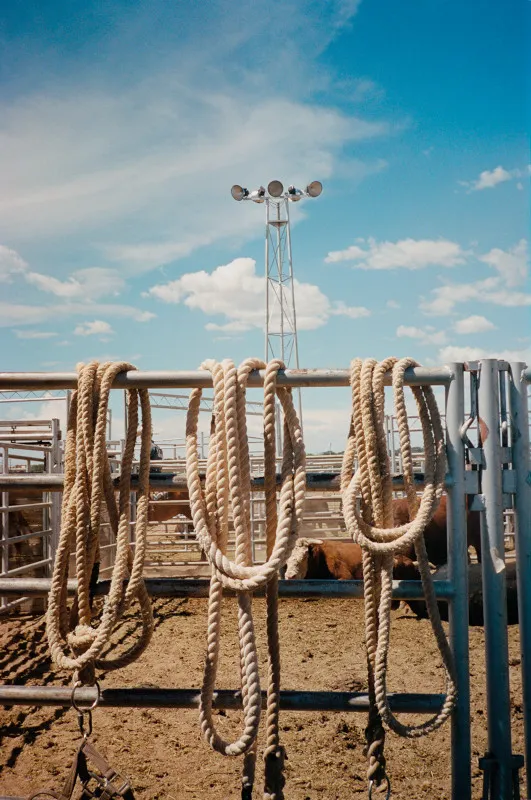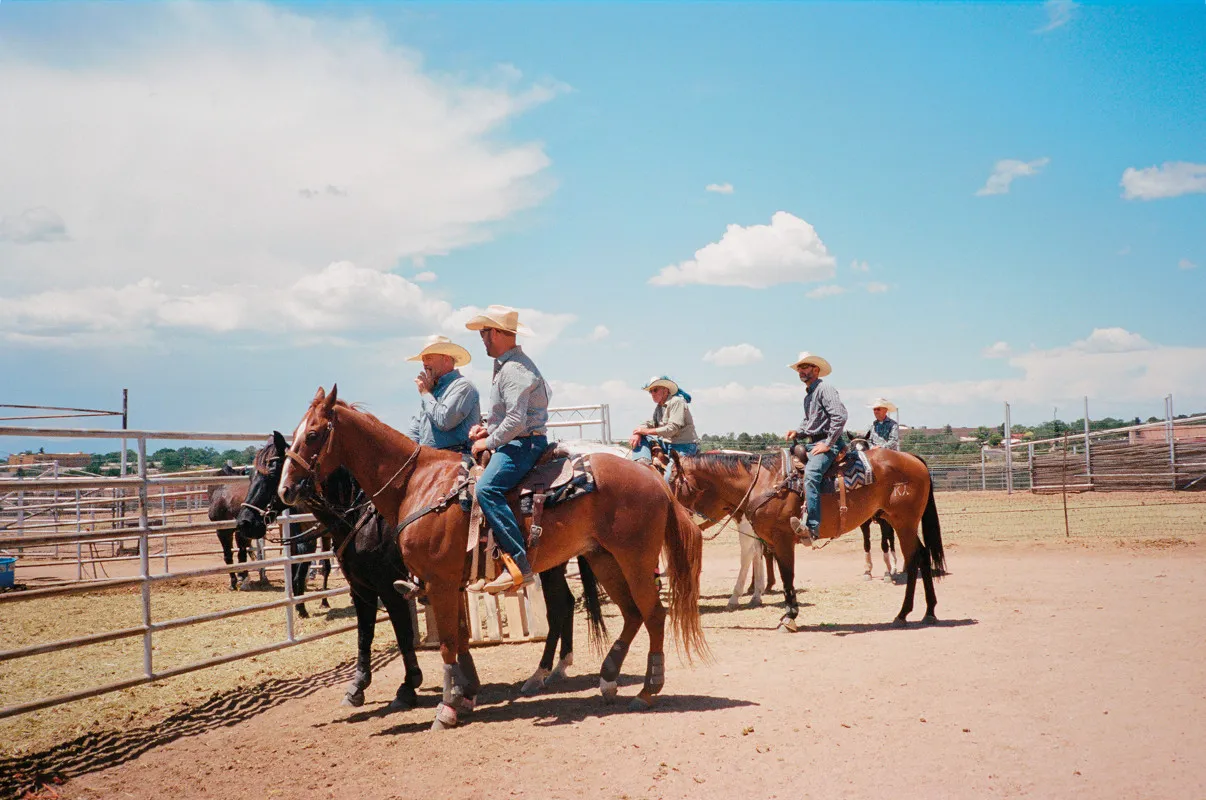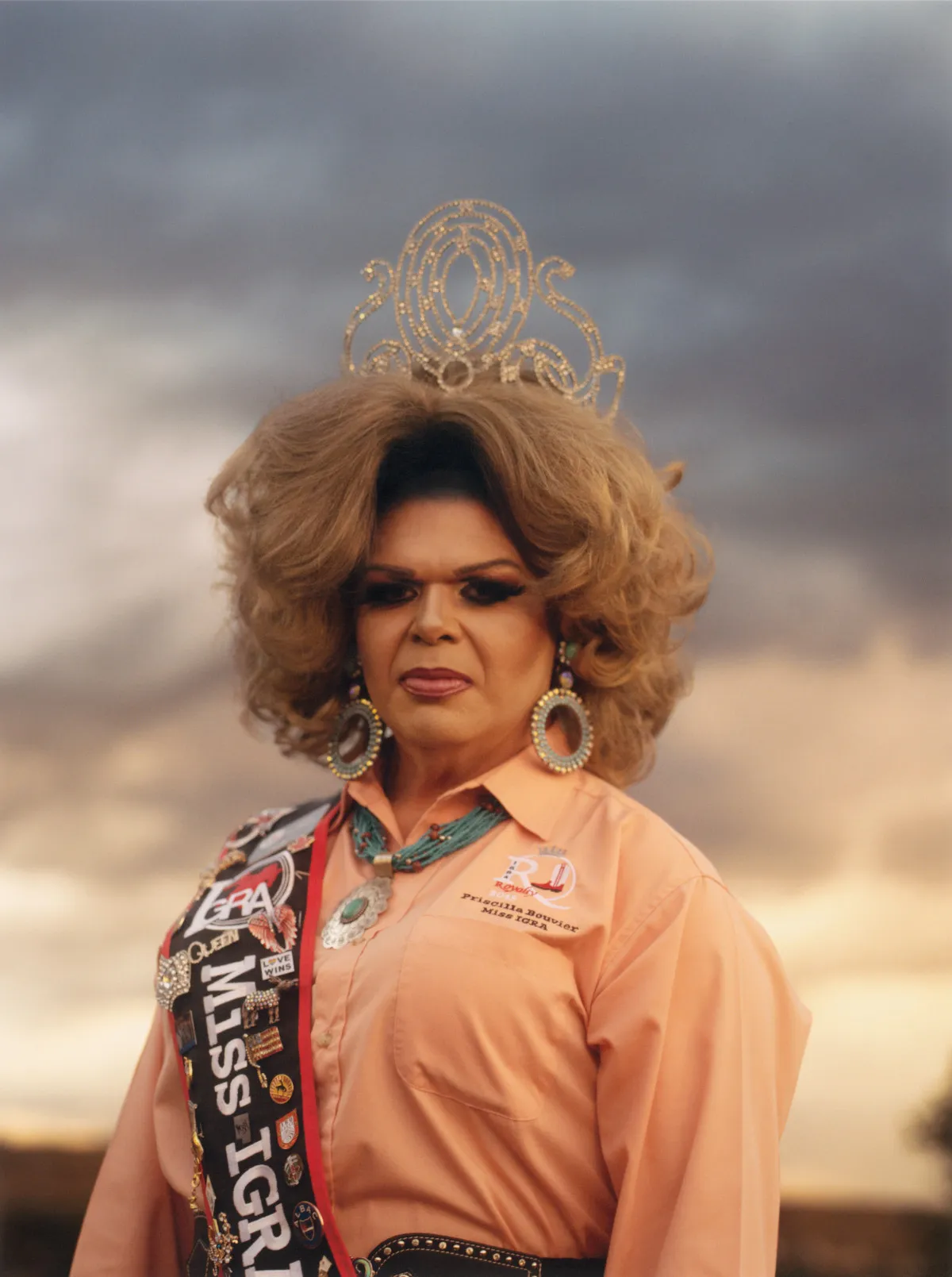 Luke Gilford, National Anthem
Luke Gilford, National Anthem Luke Gilford's National Anthem project offers a profound exploration of queerness within the rural American landscape, focusing on the vibrant community of the International Gay Rodeo Association (IGRA). Growing up immersed in mainstream rodeo culture, Gilford experienced the deep-rooted myths of Americana—its symbols of power and vulnerability—while feeling the weight of exclusion as a queer individual. His discovery of the IGRA in 2016 became a pivotal moment, revealing a space where queer identities are not just accepted but celebrated.
Spanning over four years, Gilford's journey into the queer rodeo community is documented through intimate portraits and a nuanced photographic approach that reflects the depth of trust he cultivated with his subjects. Using medium-format film, he captures the emotional landscape of the rodeo, emphasizing the dignity, defiance, and tenderness embodied by his participants. His portraits honor the complexity of rural queerness, challenging stereotypes of both urban queerness and rural conservatism.
The project also expands into film, as National Anthem evolves from still photography into a cinematic exploration of chosen family and self-discovery. Gilford’s work reframes the classic cowboy archetype, offering a more inclusive, humanized view that celebrates the diversity of American identity. Through his lens, the queer rodeo becomes a metaphor for liberation, defying societal binaries and representing a broader vision of what it means to be both American and queer.
Reissued by Damiani this fall, the new edition of National Anthem brings renewed attention to his exploration of identity, community, and the complexities of the American experience, coinciding with the feature film adaptation.
In this conversation, Gilford delves into his journey from childhood in rodeo culture to discovering the welcoming embrace of the queer rodeo community. It explores how these experiences have shaped his photographic and filmmaking practices, offering insights into the emotional and technical nuances of his work. Through this conversation, Gilford articulates his commitment to fostering collaboration and respect within the spaces he documents, revealing how these relationships influence the narratives he chooses to share.
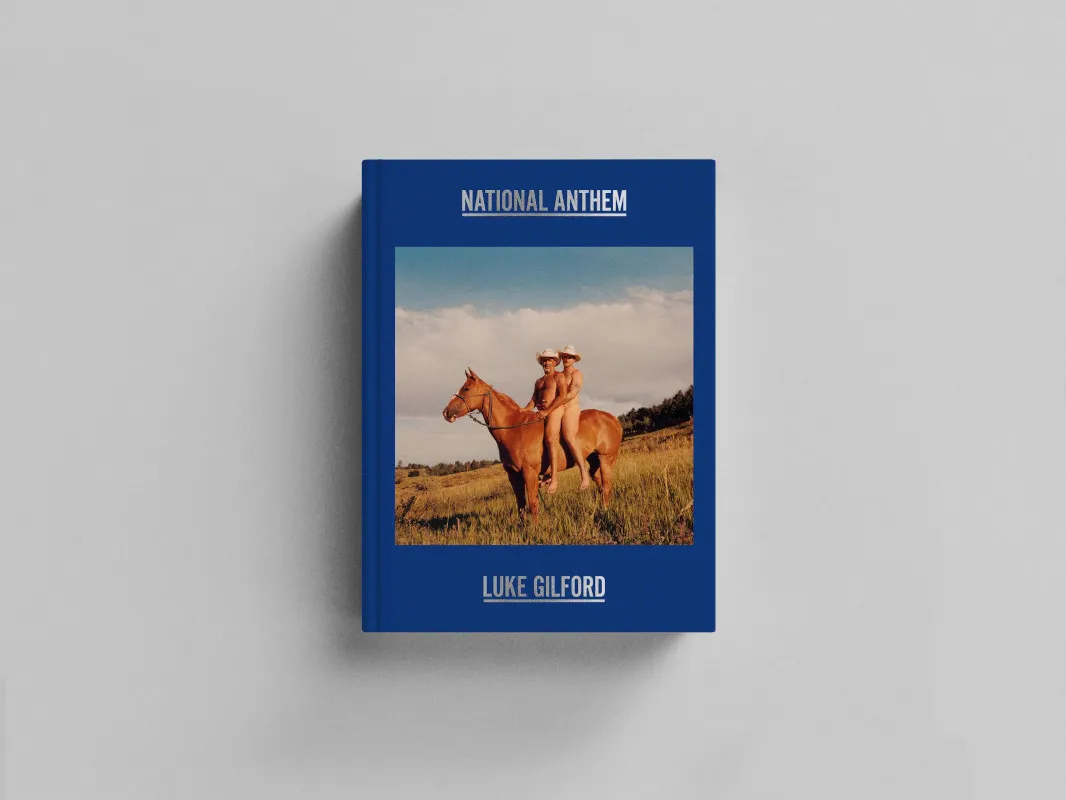
Jelena Martinovic: You grew up around the rodeo from an early age. Can you share how that experience shaped your childhood and how your relationship with the rodeo has evolved over the years?
Luke Gilford: Growing up in the rodeo was to experience the mythological side of America–nature and animals, blood and beer, denim and hairspray. I love so many aspects of Western culture, but as I grew older, I also felt like I needed to either hide or change who I am to be fully accepted.
JM: Rodeo is often seen as a space dominated by traditional notions of patriarchy and masculinity. How did you first become involved with the queer rodeo community, and how did that experience influence your perspective on rodeo culture?
LG: Discovering the queer rodeo community felt like a revelation–I had never felt so immediately welcomed or at home. I started slowly, building trust and intimacy, and I just kept showing up at more and more rodeos to demonstrate my commitment. As I continued integrating into the community, my perspective on rodeo culture became much more expansive and nuanced.
JM: Given the often stereotypical portrayal of rural America as a hostile environment for queer individuals, what surprised you most about the communities you encountered? How did these experiences challenge or change your perceptions?
JM: The queer rodeos aren’t hidden away in secret–they take place in the same arenas that the mainstream rodeos are hosted, just on different weekends. At first I wondered if there would be protestors or violence at the queer rodeos, because of those stereotypes and stories we’ve all absorbed. It’s been over 8 years that I’ve been going to these rodeos now, and I’ve never seen anything remotely hateful happen. In rural places I’ve found that the emphasis is much more on being a kind, loving person–not on identity politics.

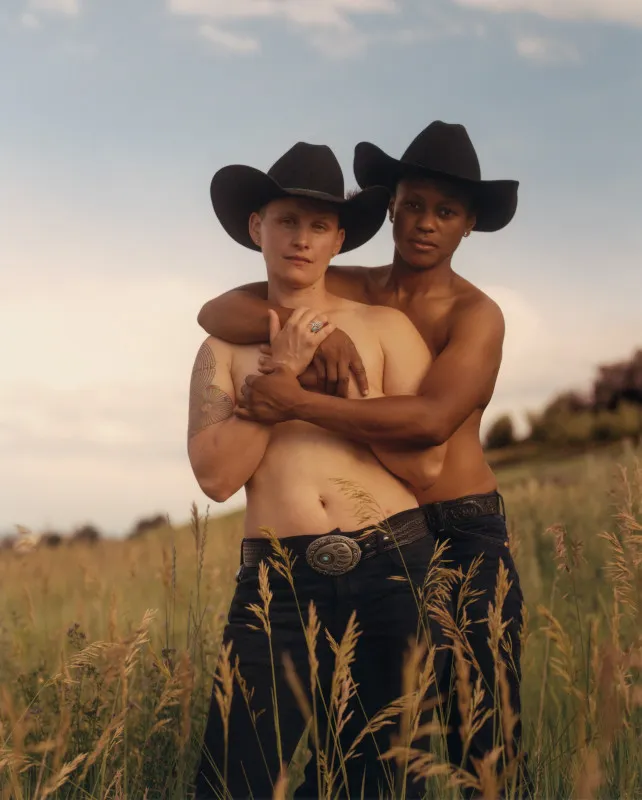
JM: This body of work was shot over four years, during which you built intimacy and trust with the queer rodeo community. How did you balance being both a participant and an observer in this space? How did this dual role influence your photographic approach?
LG: With this community in particular there were some trust issues to work through because of past experiences being portrayed in an offensive and disrespectful manner. In general, I notice that photographers often come into spaces and communities with a sense of entitlement, as if they have an innate right to photograph whatever they want, and then share it however they want. This lack of thoughtfulness or respect has become even more common now that so many of us have powerful cameras in our pockets and platforms that we can publish images on instantaneously. So I made a conscious effort to move more slowly, to make human connections before I started shooting, and to share more about my process and intention with those participating–treating them more like collaborators than subjects.
JM: Your portraits confront viewers with a directness that highlights the dignity of your subjects as they assert their presence within the landscape of the American Southwest. Could you share insights into your working process, including the technical and emotional aspects of your approach to portraiture?
LG: Dignity is paramount to me, and I think we all know when we’re on the receiving end of both dignity and grace. It can be sensed, even without words. To me the photographic process is a dance–a shared experience of seeing one another and crossing a bridge into each other’s world.
JM: Your work in this series eventually led to your directorial debut with the film of the same name, which premiered this summer. What motivated you to continue this narrative through the medium of film, and how did the transition from photography to filmmaking shape the story you wanted to tell?
LG: The experience of becoming part of this community changed my life in many ways and inspired me so deeply, it felt like a natural extension to start writing about it.
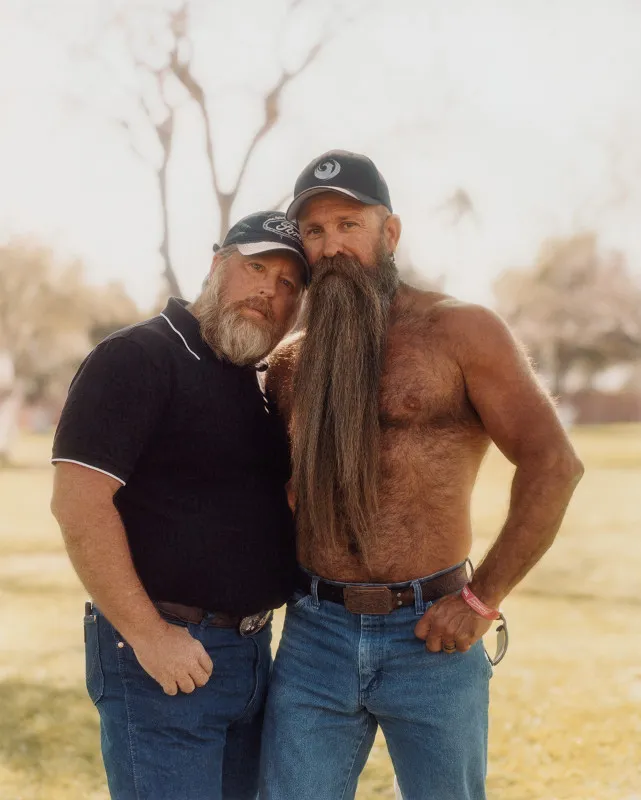
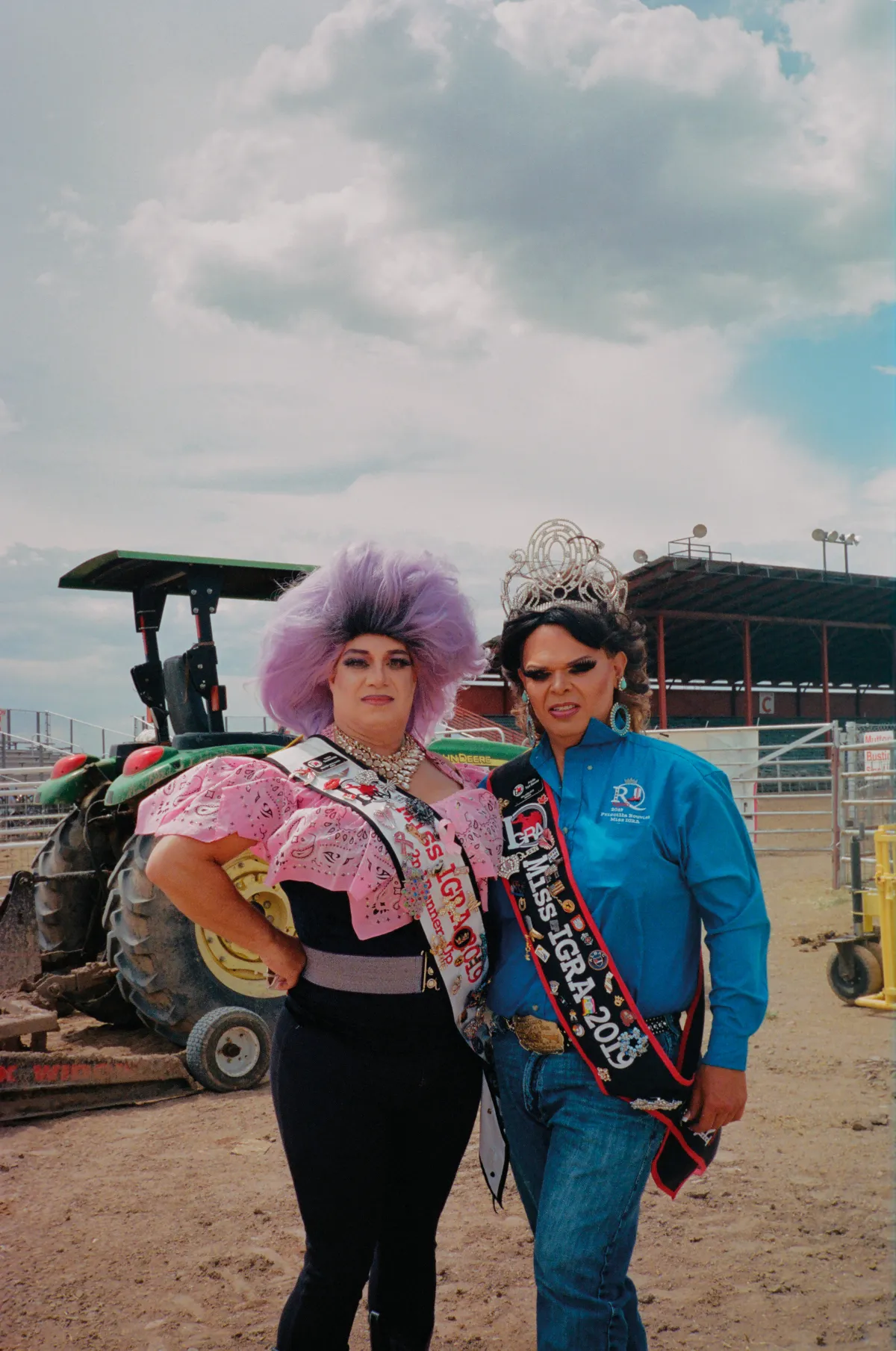
JM: Both the photo series and the film honor the power of the chosen family. How important is this notion in enabling people to feel truly seen and accepted, especially in traditionally heteronormative environments like the rodeo?
LG: Both the photography series and the film are about reframing the archetype of the classic American cowboy to be much more expansive and nuanced. Not just seen and accepted–but dignified, defiant and human. A form of masculinity that is more tender, not in opposition to femininity–but in harmony with it.
JM: You describe the queer rodeo as a space that disrupts America’s tribal dichotomies and celebrates a more nuanced spectrum of identity. How do you see the rodeo as both a subversion of and a tribute to traditional American ideals?
LG: America was never one thing–its greatness, promise and idealism are proportionate to its heterogeneity. None of us exist in boxes or can be contained by labels–politically, sexually, or otherwise. To some people the “gay rodeo” sounds like a paradox, but it’s really a metaphor for anyone who wants to be free.
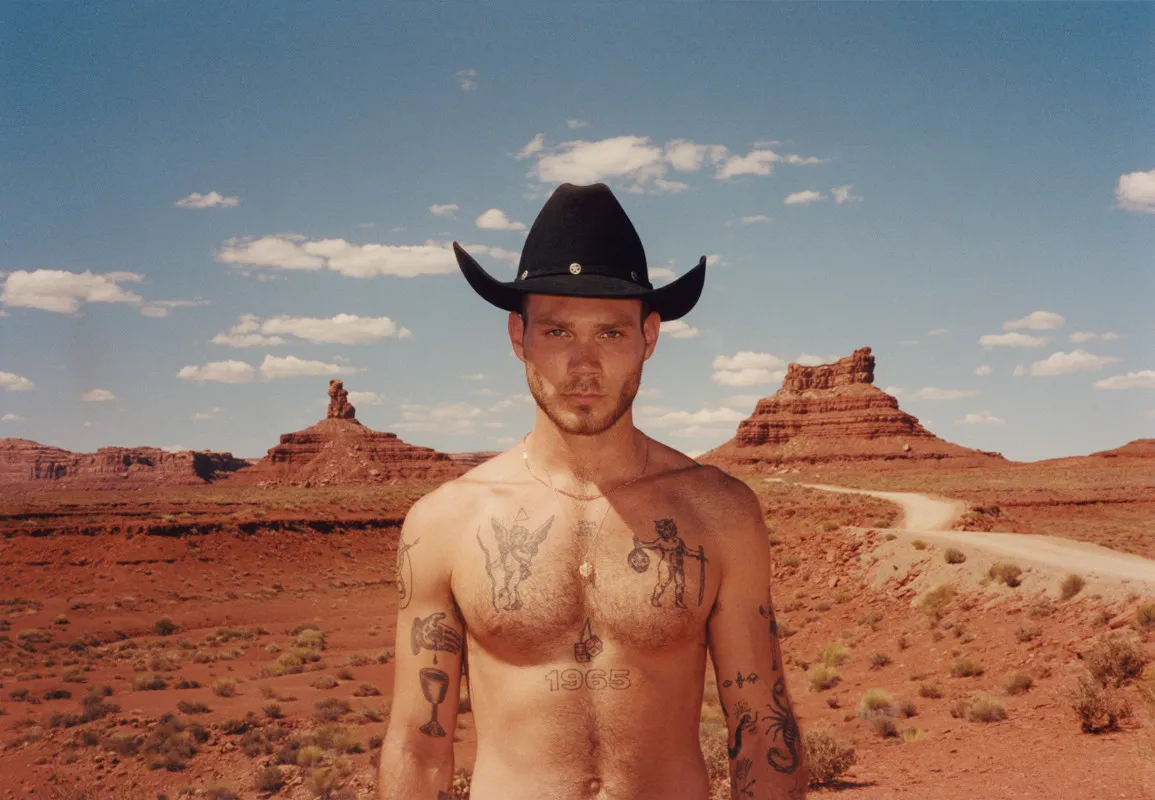
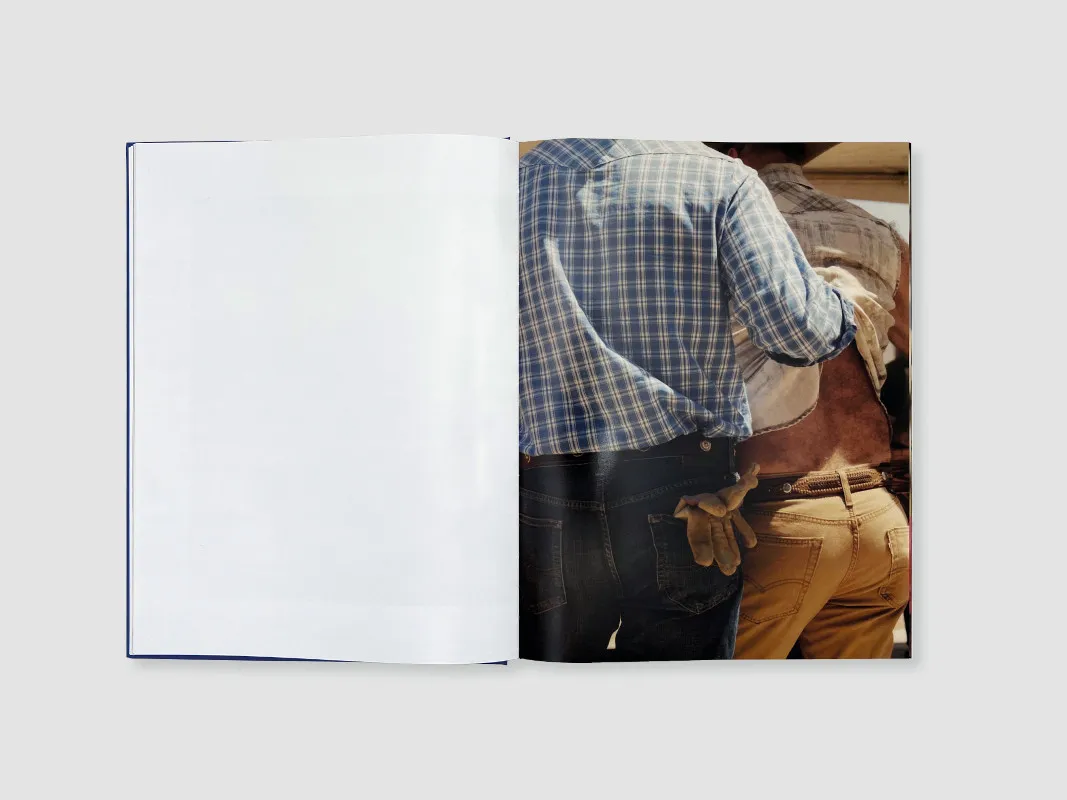
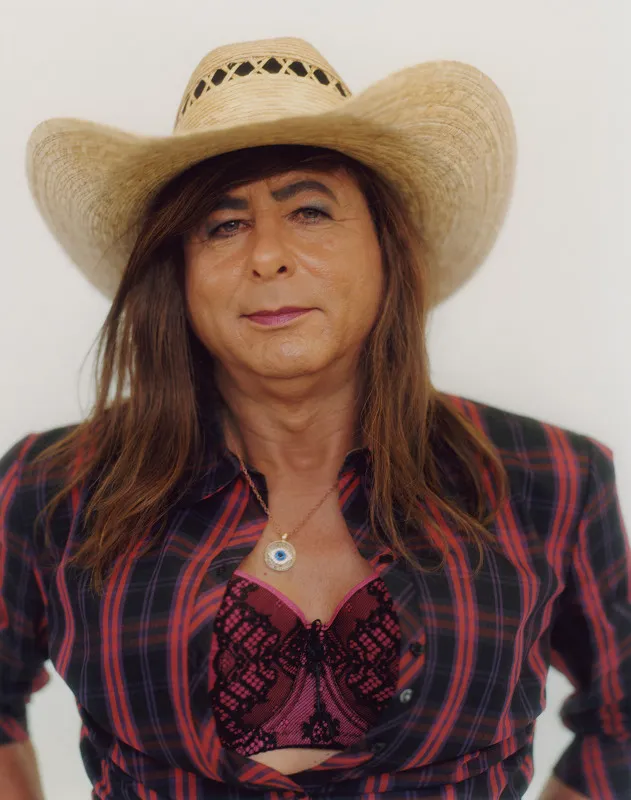
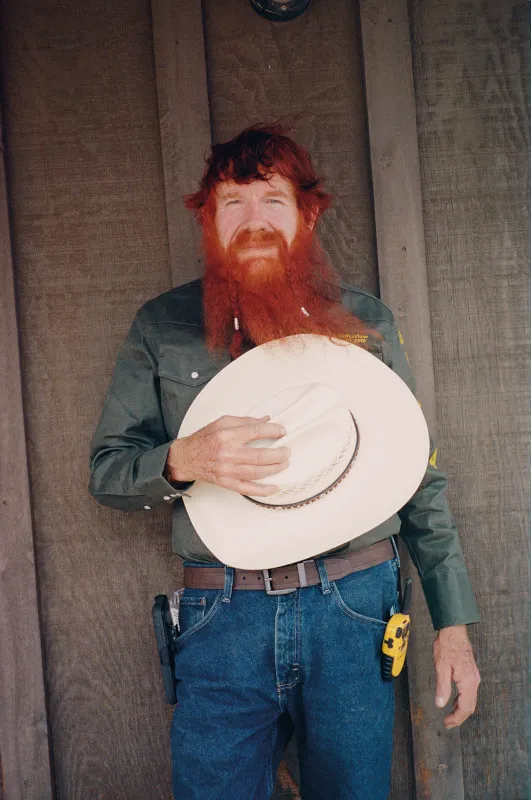
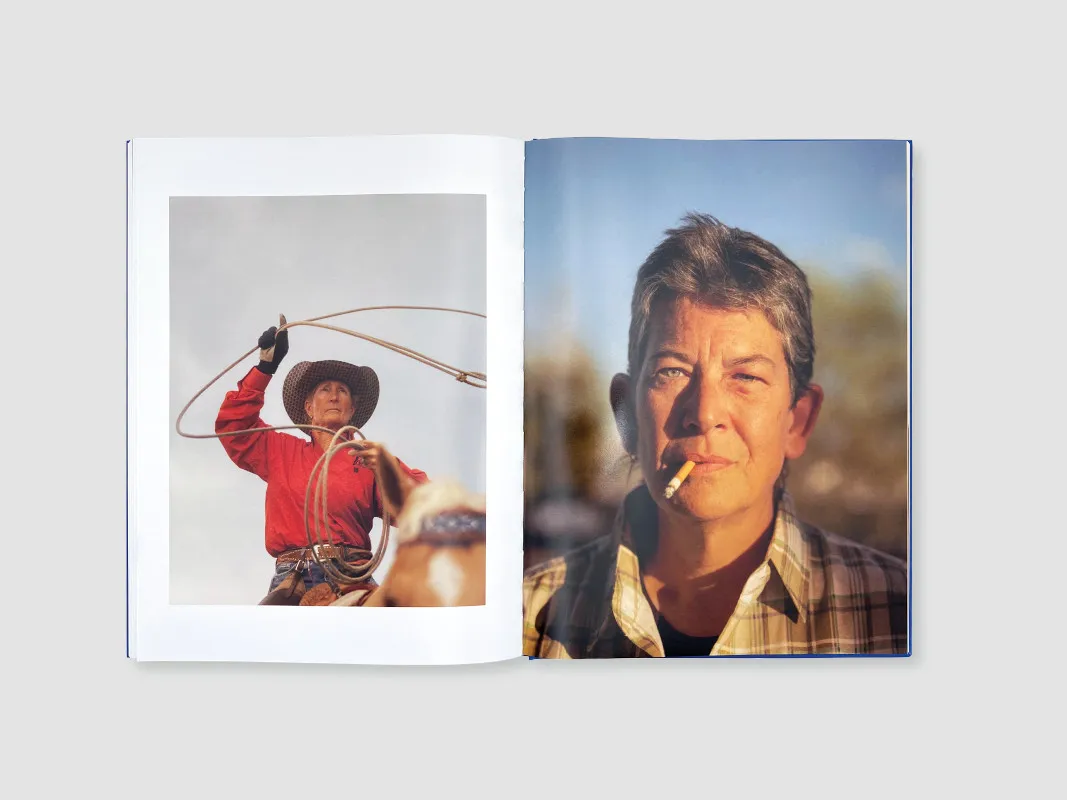
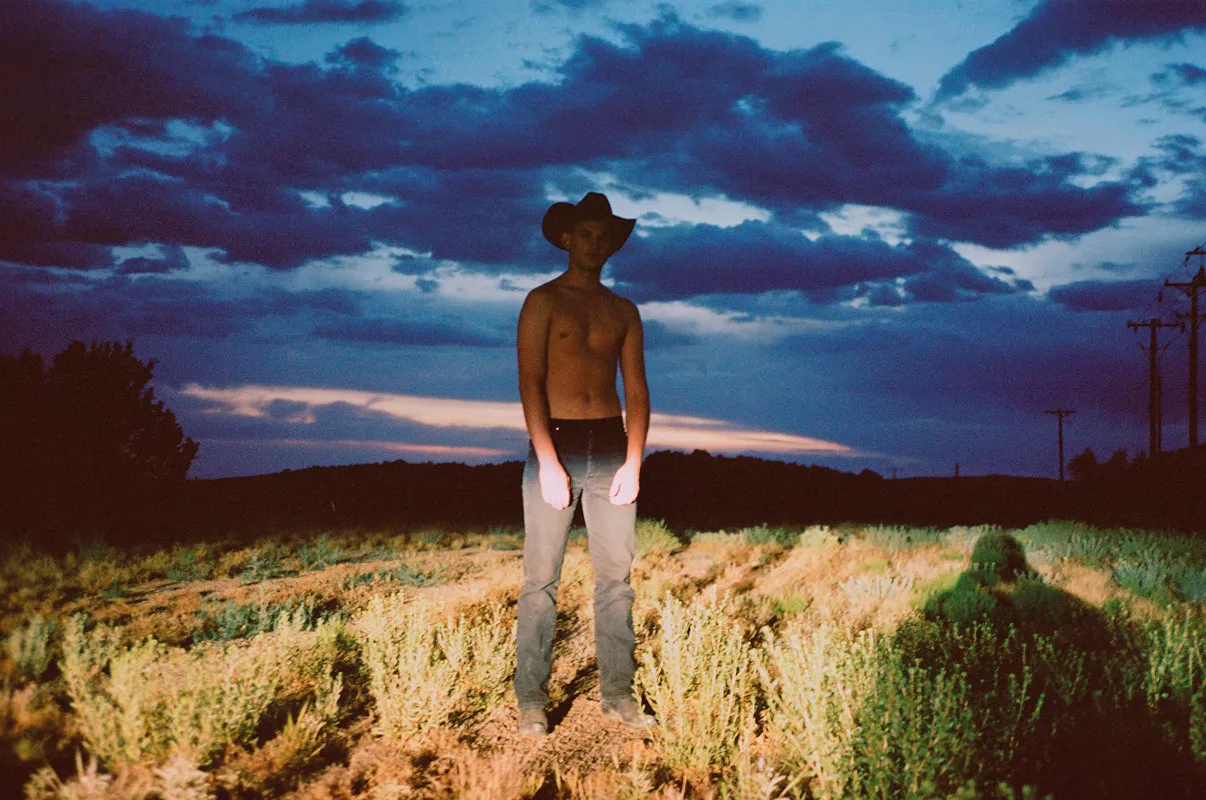
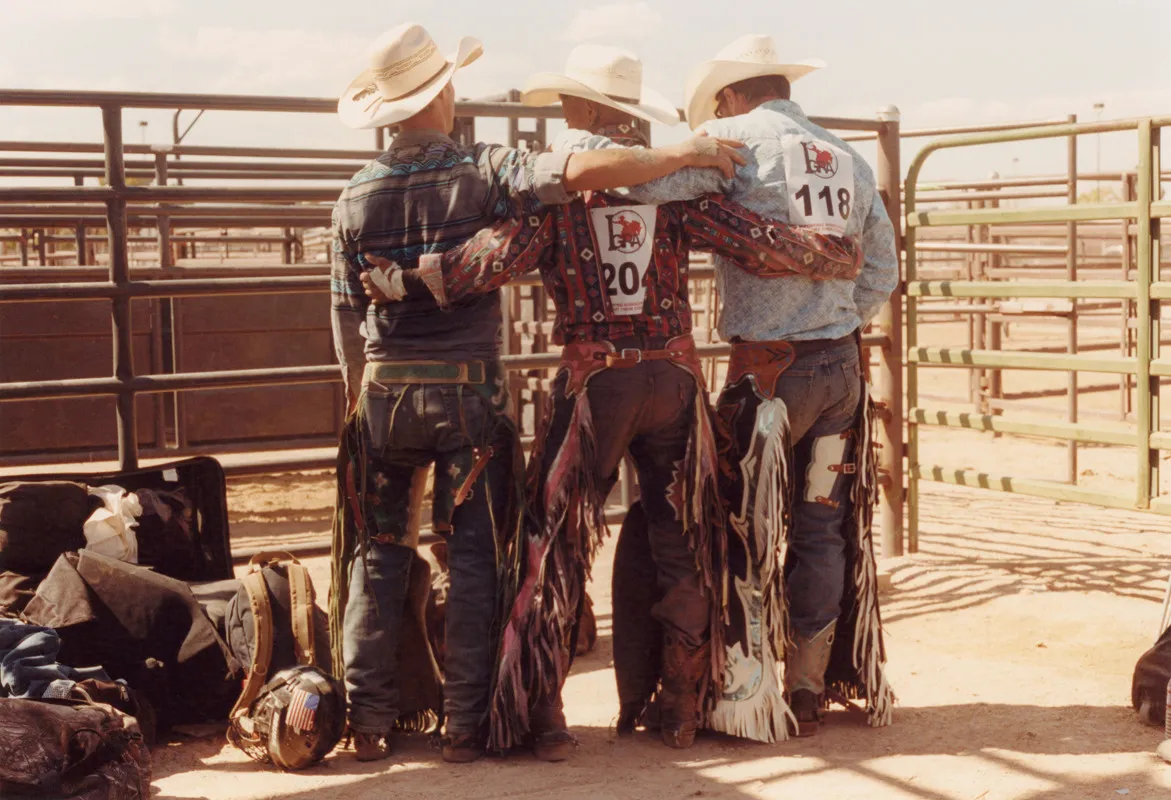
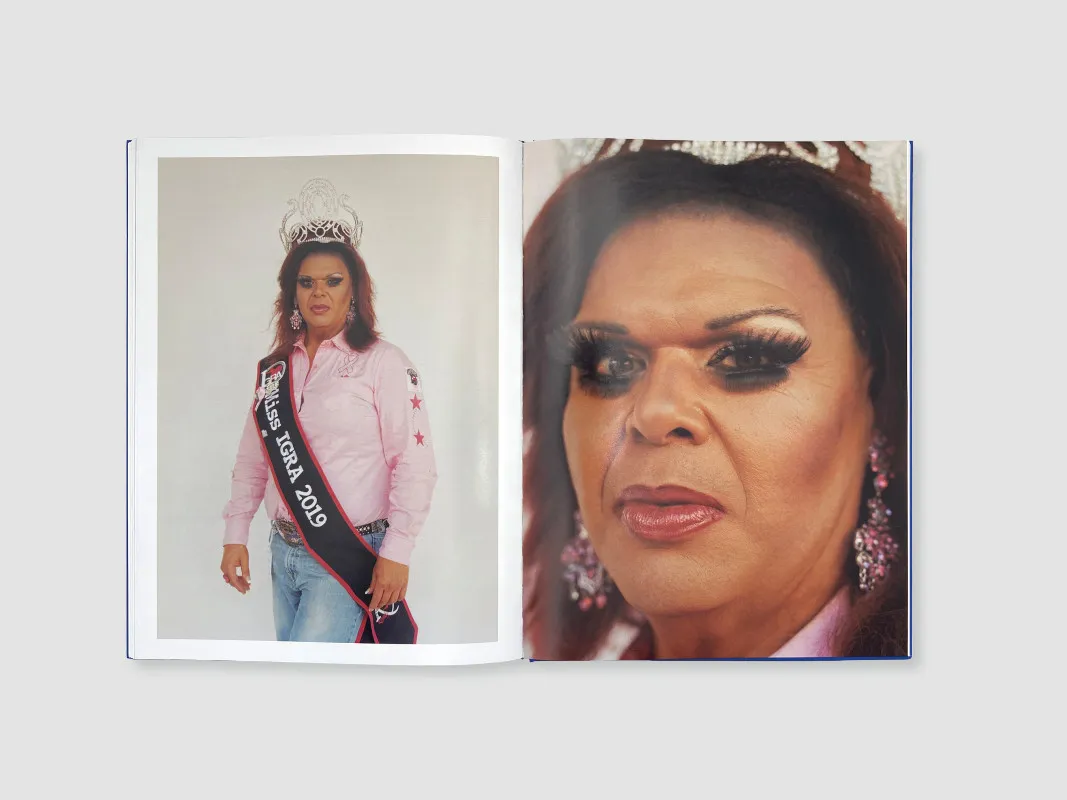
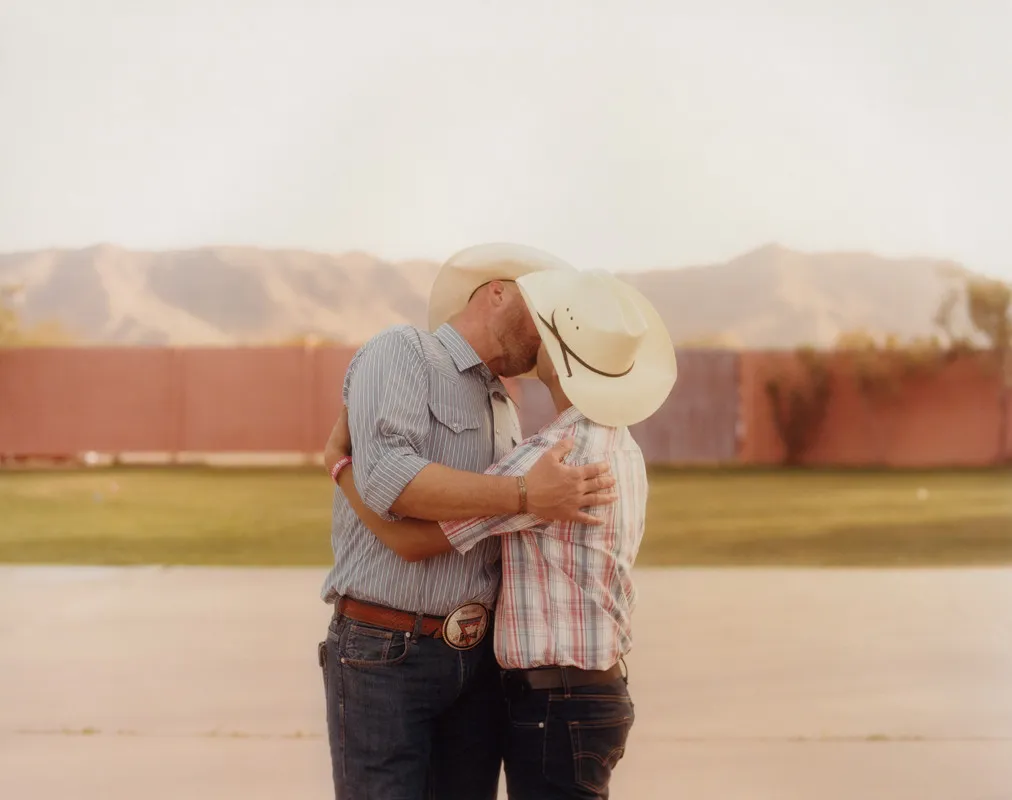
Luke Gilford, National Anthem
